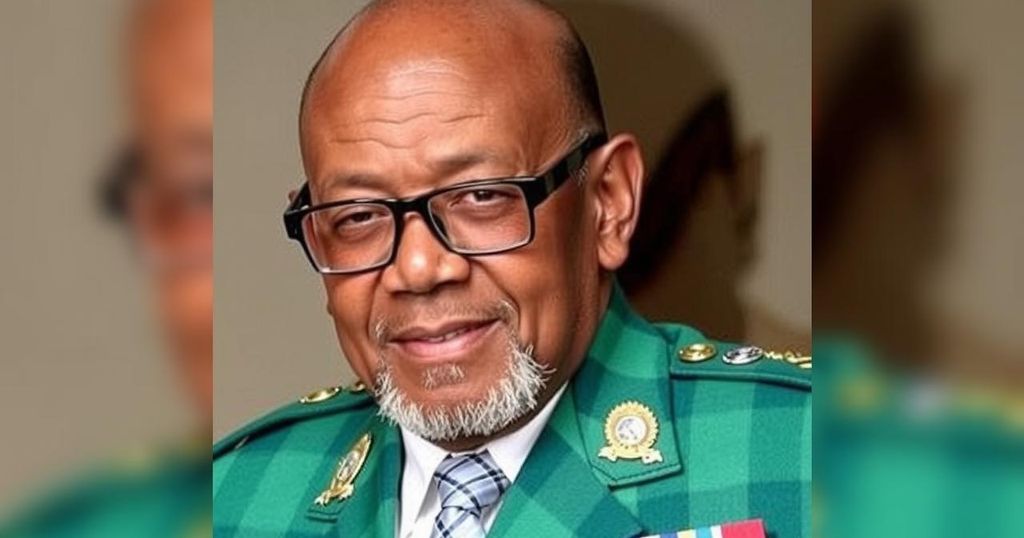Desi Bouterse, former dictator and president of Suriname, died at 79 while living as a fugitive after being convicted for the execution of political opponents. His rule saw significant support among the poor, despite a controversial legacy marked by military coups and political violence. Current President Chan Santokhi offered condolences to his family after Bouterse’s death, which occurred following a short illness.
Desi Bouterse, the ex-dictator and once-elected president of Suriname, has passed away at the age of 79, as confirmed by the government on Wednesday. His demise occurred on Tuesday after a brief illness while he was in hiding, following his conviction for the execution of political adversaries. Despite his fugitive status, he maintained considerable support among the impoverished and working-class demographics in Suriname. Bouterse initially seized control through a military coup in 1980, relinquished power in 1987 under international pressures, and made a subsequent comeback in 1990 along with a second coup. After serving a decade as president from 2010, he remained a significant figure in Surinamese politics until his death. President Chan Santokhi extended condolences to Bouterse’s family and urged the public to remain calm during this time of uncertainty.
Desi Bouterse’s political career is characterized by his rise to power through military coups and subsequent electoral victories. His first coup in 1980 introduced a dictatorship marked by allegations of political violence, leading to his resignation in 1987. His return to prominence in the 1990s and election as president in 2010 showcased a controversial legacy, as he was later convicted for grave human rights abuses, yet continued to enjoy support from some sectors of the population. Bouterse’s life was marked by a dichotomy of authority and infamy, indicative of the complexities of Surinamese politics post-colonization.
The death of Desi Bouterse marks the end of a tumultuous chapter in Suriname’s history. His legacy is marked by both his leadership and the serious human rights violations committed during his rule. While he retained loyalty among certain communities, his fugitive status and conviction for political executions cast a long shadow over his political achievements. His passing invites a re-examination of the historical context of his leadership and its implications for the future of Suriname.
Original Source: www.scmp.com






